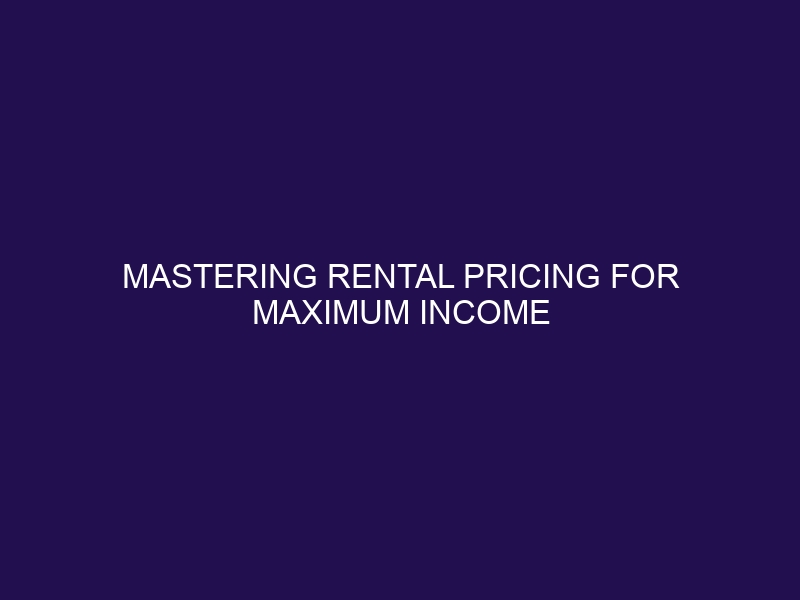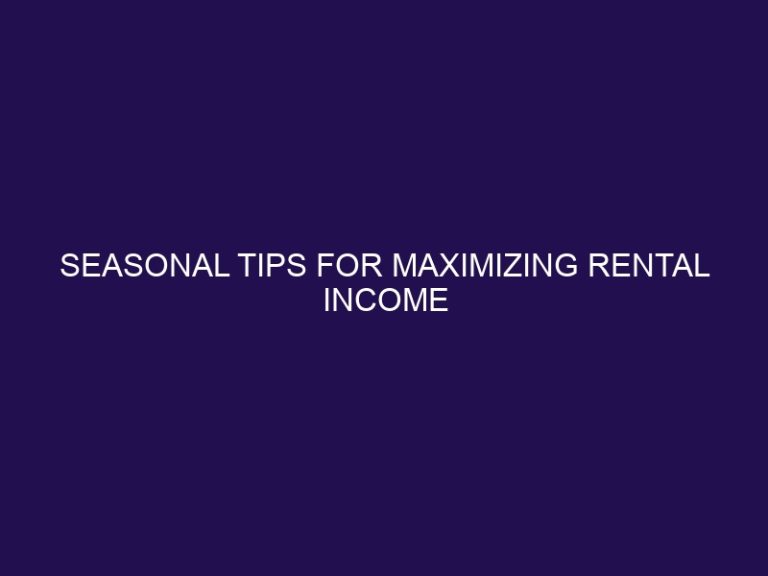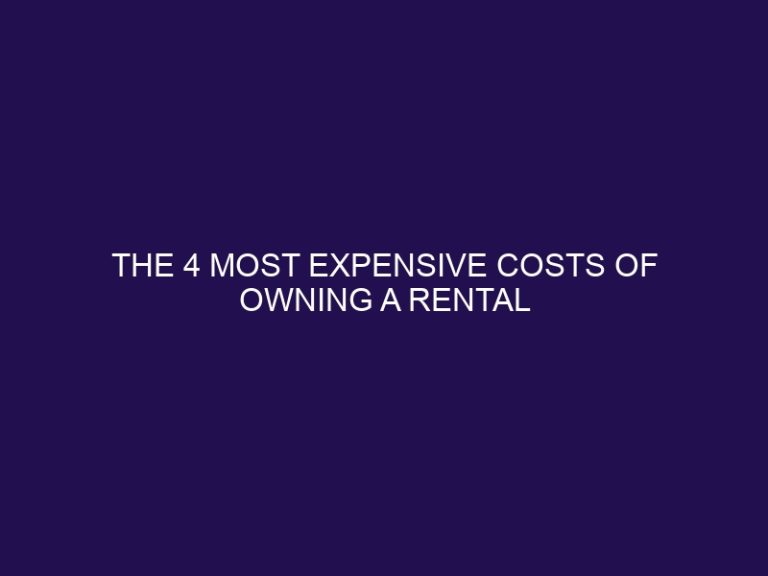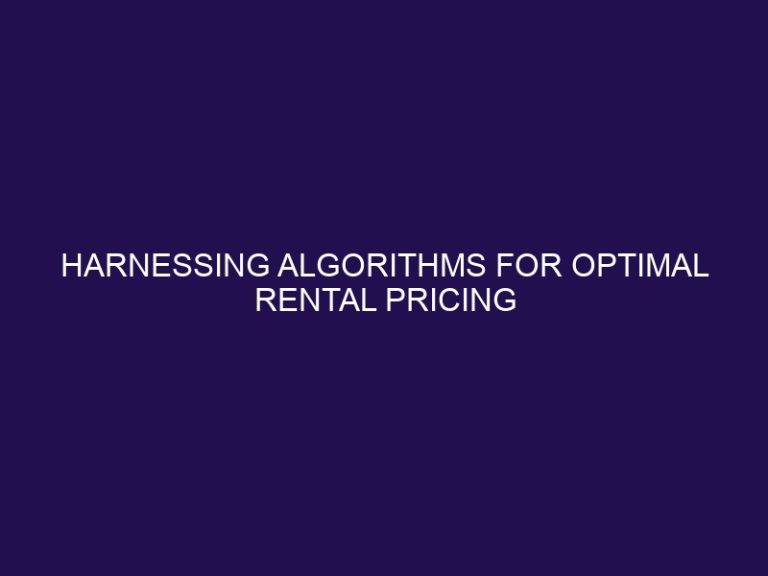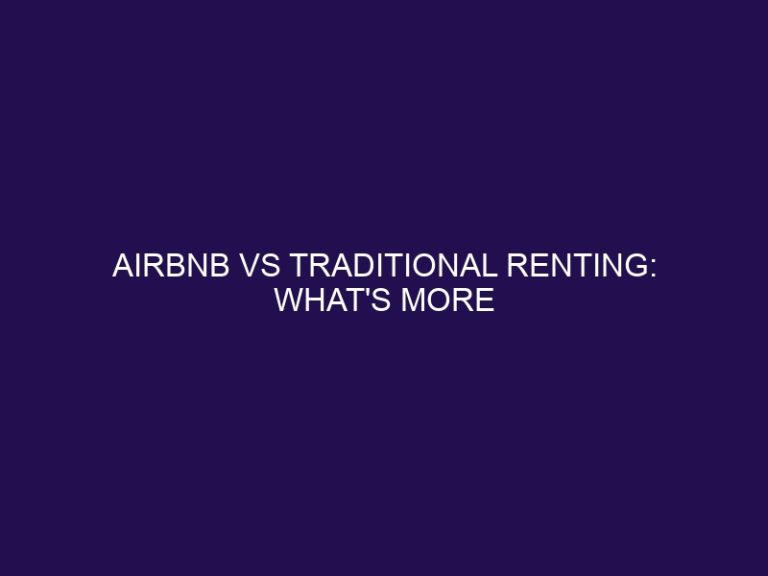Mastering Rental Pricing for Maximum Income
Rental pricing refers to the process of determining the appropriate amount to charge for a rental property. It is an essential aspect of property management and can greatly affect the income generated from a rental property. According to a study published by the National Multifamily Housing Council, rental income accounts for about 40% of a property’s total operating income. Therefore, mastering rental pricing is crucial for maximizing income and ensuring the success of a rental property.
The importance of rental pricing lies in its ability to attract potential tenants, generate income, and maintain profitability. A rental property that is priced too low can result in missed opportunities for higher income, while setting the price too high can lead to prolonged vacancies and financial losses. Additionally, appropriate rental pricing is necessary to stay competitive in the market and attract quality tenants.
Several factors can influence rental pricing, including location, property type, amenities and features, and market demand. Understanding these factors is crucial in determining the right rental price for a property.
To determine the right rental price, property owners must conduct thorough market research and consider their expenses, as well as current market trends. It is essential to research comparable properties in the area and factor in any expenses, such as mortgage payments, property taxes, and maintenance costs. Considering market trends, such as rental demand and vacancy rates, can also help determine the optimal price.
Some common mistakes in rental pricing include setting the price too high, not considering the competition, and ignoring market trends. These mistakes can result in prolonged vacancies and financial losses for property owners.
To adjust rental pricing for maximum income, property owners can offer incentives, renovate or upgrade the property, consider seasonal demand, and utilize dynamic pricing strategies. Offering incentives, such as a free month’s rent, can attract potential tenants and result in a higher rental income. Renovating or upgrading the property can also increase its value and justify a higher rental price. Additionally, considering seasonal demand can help adjust the rental price accordingly. Utilizing dynamic pricing strategies, such as adjusting prices based on demand and market trends, can also maximize rental income. By mastering rental pricing, property owners can optimize their rental income and ensure the success of their rental property.
What Is Rental Pricing?
Rental pricing is the fee charged for leasing a property, which is determined by factors such as location, amenities, and market demand. It is a key factor in attracting tenants and maximizing property income. A landlord may adjust the rental pricing based on market trends, potentially doubling the property’s income within a year.
Why Is Rental Pricing Important?
Why Is Rental Pricing Important?
Rental pricing is essential for maximizing income, attracting tenants, and remaining competitive in the market. To set optimal rental prices, it is suggested to conduct thorough market research, analyze property amenities, and consider the demand for location.
What Factors Affect Rental Pricing?
When it comes to maximizing rental income, pricing is a crucial factor to consider. However, determining the right rental price can be a daunting task. In this section, we will discuss the various factors that influence rental pricing. From the location and type of property to the amenities and market demand, we will uncover the key elements that need to be taken into account when setting the rental price for your property. By understanding these factors, you can make informed decisions and achieve maximum income from your rental.
1. Location
- Research the desirability and safety of the neighborhood’s location.
- Analyze its proximity to amenities and transportation hubs.
- Evaluate the local job market and economic growth in the area.
2. Property Type
When determining rental prices, the type of property is a crucial factor to consider. The pricing strategy is significantly influenced by whether the property is a single-family home, apartment, or commercial space. For example, single-family homes may have higher rental rates due to their privacy, while apartments provide more affordable options for tenants.
3. Amenities and Features
The presence of amenities and features can greatly affect the cost of rent, taking into account factors such as property type, square footage, included appliances, and added facilities like gyms or pools. Additionally, sought-after features like smart home technology or energy-efficient appliances can justify higher rental prices. For example, a property with a modern gym and high-speed internet experienced a 15% increase in rental income within just three months.
4. Market Demand
Market demand plays a major role in determining rental prices as it reflects the equilibrium between supply and demand. To comprehend market demand, one must analyze local rental patterns, assess occupancy rates, and consider economic indicators in order to make informed pricing decisions.
How To Determine the Right Rental Price?
Setting the right rental price for your property is crucial for maximizing your income as a landlord. In this section, we will discuss the key factors to consider when determining the rental price for your property. By researching comparable properties, considering your expenses, and factoring in market trends, you can confidently set a competitive and profitable rental price that will attract potential tenants. Let’s dive into the details of how to determine the right rental price for your property.
1. Research Comparable Properties
- Begin by researching comparable properties in your area.
- Analyze their rental prices and amenities to get a better understanding of the market.
- Take into consideration the condition, size, and location of these properties.
- Adjust your rental price based on the comparative analysis.
2. Consider Your Expenses
- Evaluate all expenses related to the property, including mortgage, property taxes, insurance, maintenance, and property management fees.
- Remember to factor in additional costs such as utilities, advertising, legal fees, and any unforeseen repairs or vacancies.
- It is important to include a buffer for unexpected expenses in order to maintain financial stability.
3. Factor in Market Trends
Analyze rental data to identify any upward or downward trends.
Monitor vacancy rates and any changes in rental prices in the area.
Consult with real estate experts to gain insights into potential future market movements.
Did you know? Being aware of market trends can help maximize rental income.
What Are Some Common Mistakes in Rental Pricing?
As a rental property owner, it is crucial to set the right price for your unit in order to maximize your income. However, there are several common mistakes that can hinder this goal. In this section, we will discuss the most common mistakes made in rental pricing and how to avoid them. From setting the price too high to ignoring market trends, we will cover the key factors that can impact the success of your rental pricing strategy.
1. Setting the Price Too High
- Conduct thorough market research to understand comparable property prices and avoid setting the price too high.
- Assess demand and competition to set a competitive yet profitable price.
- Consider the property’s unique features and amenities to justify the rental price.
2. Not Considering the Competition
- Research similar properties to understand their pricing strategies.
- Analyze the features and amenities offered by competitors.
- Assess the demand for rental properties in comparison to the competition.
Pro-tip: By considering the competition, you can gain insight into their pricing strategies and the features and amenities they offer. This will help you set a competitive rental price and attract potential tenants.
3. Ignoring Market Trends
- Regularly monitor rental prices in the area.
- Stay updated on changes in the local rental market.
- Adapt pricing strategies to align with current trends and demand.
Pro-tip: Ignoring market trends can result in missed income opportunities and extended vacancies.
How To Adjust Rental Pricing for Maximum Income?
As a rental property owner, the ultimate goal is to maximize income while maintaining a competitive pricing strategy. In this section, we will discuss the various ways to adjust rental pricing in order to achieve maximum income. These techniques range from offering incentives to renovating or upgrading the property, considering seasonal demand, and utilizing dynamic pricing strategies. By understanding and implementing these strategies, you can effectively increase your rental income and attract more potential tenants.
1. Offer Incentives
- Provide rent discounts for long-term leases.
- Include utilities or amenities within the rent.
- Offer referral bonuses to current tenants.
- Implement rent-free periods for new tenants.
Consider creative incentives to attract and retain tenants, such as offering discounted gym memberships or free parking.
2. Renovate or Upgrade the Property
- Assess the condition of the property and identify areas for improvement.
- Develop a budget for renovations or upgrades.
- Consider adding appealing features such as modern appliances or energy-efficient solutions.
- Hire reputable contractors for quality workmanship.
Enhancing your rental property through renovations or upgrades can attract higher-paying tenants and increase property value.
3. Consider Seasonal Demand
- Monitor local events and activities to anticipate demand fluctuations.
- Adjust pricing during peak seasons to capitalize on higher demand.
- Offer discounts or promotions during off-peak periods to attract renters and consider seasonal demand.
4. Utilize Dynamic Pricing Strategies
- Monitor Market Demand: Regularly analyze demand fluctuations to adjust prices accordingly.
- Implement Seasonal Pricing: Adjust rates based on peak seasons and demand patterns.
- Utilize Dynamic Algorithms: Employ software that adapts pricing based on real-time market changes and implements dynamic pricing strategies.
How To Get Started with Rental Pricing?
Are you ready to maximize your rental income? The first step is getting started with rental pricing. In this section, we will discuss the initial consultation process, where experts can assess your property and rental market to determine the best pricing strategy. We will also explore tailored solutions for rental pricing, which take into account factors such as location, amenities, and competition. With these tips, you can ensure that your rental property is priced competitively and strategically to bring in maximum income.
Initial Consultation
- Assess Client Needs: Understand the client’s property, goals, and target market during the initial consultation.
- Evaluate Property: Conduct a thorough property assessment to determine its rental potential.
- Market Analysis: Analyze local rental market trends and demand during the initial consultation.
- Discuss Pricing Strategy: Collaborate with the client to develop a competitive pricing strategy during the initial consultation.
During the initial consultation, focus on building a strong rapport and demonstrating expertise to instill confidence in potential clients.
Tailored Solutions
Customized solutions in rental pricing involve tailoring the rental strategy to fit specific property attributes and market dynamics. This includes:
- personalized marketing approaches
- lease terms
- and pricing models tailored to the unique features of the property and the local rental market.
Summary
Rental pricing mastery requires a thorough analysis of market trends, property details, and competition. Striking a balance between maximizing profit and ensuring tenant satisfaction is crucial.
In Seattle, a property owner successfully increased their rental income and maintained high occupancy rates by strategically adjusting prices based on local events.
Frequently Asked Questions
What is the importance of mastering rental pricing for maximum income?
Mastering rental pricing is crucial for maximizing rental revenue and attracting high-quality tenants. It also allows property owners to confidently determine the ideal rent price, increase rental income, and maximize returns on their investment.
How can property management companies help in setting the appropriate rent price?
Property management companies have the resources and expertise to conduct extensive research, such as comparative market analysis, and provide valuable insights and guidance in setting the right rent price. This ensures that the property is priced competitively and in line with the market demand dynamics.
What factors should be considered when determining the optimal rent price for a rental property?
Factors such as location, amenities, upgrades, market trends, tenant demographics, and desired occupancy rate should be considered when setting the optimal rent price for a rental property. Meticulous market analyses and expert guidance can help in assessing these factors and developing a calculated strategy.
Why is it important to utilize market research tools when pricing a short-term rental property?
Market research tools, such as AirDNA and KeyData, provide valuable market intelligence and performance metrics that help property managers understand the local market, pricing fluctuations, and average pricing range. This information is crucial in positioning the property competitively and maximizing returns.
How can property enhancements and upgrades command premium rates for rental properties?
Upgrading and enhancing a rental property, such as renovations and updated appliances, can justify higher pricing and attract tenants willing to pay more for the added value. Showcasing these upgrades in the property listing can also create a better guest experience and encourage repeat visitors.
How can mastering rental pricing help a short-term rental business achieve sustainable growth?
Mastering rental pricing is a powerful tool that can help a short-term rental business achieve sustainable growth. By understanding their costs, market demand, and desired occupancy rates, businesses can develop a pricing strategy that maximizes revenue, minimizes guest frustration, and drives stable prices.

